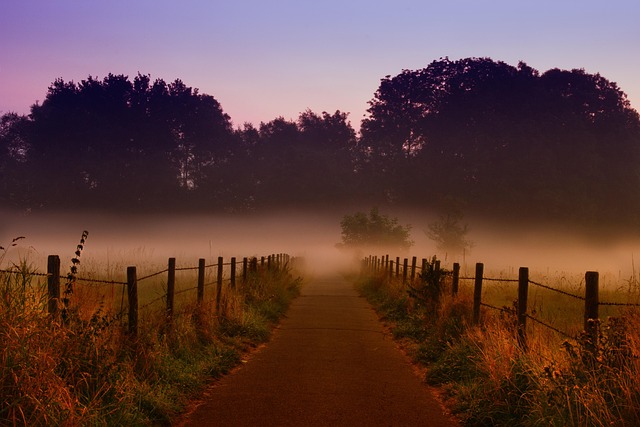In New Bedford, MA, the shift towards eco-friendly living has extended to fencing, with a growing preference for sustainable materials. This article explores the latest trends in green fencing, highlighting its numerous benefits for both homeowners and local ecosystems. From reduced environmental impact to longevity and aesthetic appeal, we delve into natural options that offer a robust alternative to traditional fences. Prepare to discover how eco-fencing can transform your outdoor space while fostering a healthier environment.
- Eco-Friendly Fencing Trends in New Bedford
- Benefits of Sustainable Fence Materials
- Natural Options for Long-Lasting Fences
- How Eco-Fencing Enhances Local Ecosystems
- Cost Comparison: Green vs Traditional Fencing
- Installing and Maintaining Eco-Friendly Fences
Eco-Friendly Fencing Trends in New Bedford
In recent years, New Bedford has seen a growing trend towards eco-friendly fencing materials as residents and local businesses embrace sustainable practices. Natural, renewable options like cedar, bamboo, and recycled plastic are gaining popularity due to their environmental benefits. These materials not only reduce carbon footprints but also offer aesthetic appeal with their unique textures and colors.
Local landscaping companies and DIY enthusiasts alike are incorporating these innovative fencing solutions into New Bedford’s urban and suburban landscapes. From sleek, modern designs to traditional styles, eco-friendly fences blend functionality with a commitment to preserving the area’s natural beauty and ecological balance. This shift reflects a broader movement across Massachusetts towards sustainable living, where choosing environmentally conscious products for outdoor spaces is increasingly important.
Benefits of Sustainable Fence Materials
In an era where environmental consciousness is paramount, opting for sustainable fencing materials offers a multitude of benefits for both New Bedford residents and the local ecosystem. These eco-friendly alternatives provide not just aesthetic appeal but also contribute to a healthier, more balanced environment. The use of recycled or biodegradable fence components reduces the carbon footprint associated with traditional fencing manufacturing, thereby decreasing pollution and conserving natural resources.
Moreover, sustainable fencing materials often possess superior durability and longevity compared to their non-eco-friendly counterparts. These products are designed to withstand harsh weather conditions, including New Bedford’s unique climate, without compromising structural integrity. This reduced need for frequent replacements translates into cost savings for homeowners while minimizing waste that would otherwise end up in landfills.
Natural Options for Long-Lasting Fences
In New Bedford, MA, homeowners and property managers are increasingly seeking eco-friendly fencing solutions that offer both aesthetic appeal and durability. Natural options for long-lasting fences include materials like wood, bamboo, and plant-based composites. Each of these choices provides a unique blend of visual charm and environmental benefits. For instance, treated wood fences are renowned for their strength and longevity, while still being recyclable and biodegradable. Bamboo fencing, known for its rapid growth rate, offers an attractive alternative that is both sturdy and visually striking. Plant-based composites, made from materials like recycled plastic and wood fibers, combine the best of both worlds: they are remarkably durable and require minimal maintenance, reducing the need for chemical treatments and frequent replacement.
These natural fencing materials not only contribute to a more sustainable environment but also enhance the overall value and aesthetics of properties in New Bedford. Their ability to withstand various weather conditions makes them suitable choices for outdoor spaces, ensuring that homeowners can enjoy their investments for years to come while promoting ecological harmony.
How Eco-Fencing Enhances Local Ecosystems
Eco-friendly fencing materials, such as recycled plastic, bamboo, or natural fibers, offer a sustainable alternative to traditional wood and metal barriers. Their primary benefit lies in their positive impact on local ecosystems. By choosing eco-fencing, homeowners and businesses in New Bedford contribute to reducing environmental pollution and preserving biodiversity. These materials are typically made from renewable resources, minimizing the carbon footprint associated with manufacturing and transportation.
Moreover, many eco-friendly fencing options are designed to be long-lasting and durable, which means less frequent replacement. This reduces waste and the demand for new raw materials, further protecting local ecosystems by lowering the pressure on natural resource extraction. Additionally, some types of eco-fencing provide habitats and food sources for local wildlife, fostering a healthier and more balanced ecological environment within New Bedford’s urban and suburban landscapes.
Cost Comparison: Green vs Traditional Fencing
In terms of cost, eco-friendly fencing materials present a compelling alternative to traditional options. While initial installation costs for green fences might be slightly higher, the long-term savings are significant. Natural barriers like bamboo or recycled plastic fences have a lower environmental impact and can last just as long—if not longer—than conventional wooden or vinyl fences. Moreover, these sustainable options often require less maintenance, reducing ongoing expenses.
When comparing across different green fencing materials, prices vary based on durability, aesthetic appeal, and local availability. For instance, bamboo fences tend to be more affordable but may need reinforcement for heavy-duty applications. Recycled plastic, while pricier upfront, offers superior longevity and is virtually maintenance-free. Homeowners in New Bedford, MA, can expect a reasonable return on investment with eco-friendly fencing, contributing to both environmental preservation and financial savings over time.
Installing and Maintaining Eco-Friendly Fences
Installing eco-friendly fences involves a thoughtful process, aligning with sustainable practices. Homeowners in New Bedford can choose from a variety of materials like recycled plastic, bamboo, or natural wood treated with non-toxic preservatives. The setup requires careful planning to ensure proper post placement and secure fencing. Regular maintenance is key for longevity; this includes cleaning, inspecting for damage, and re-tightening any loose components.
Many eco-friendly options require minimal upkeep compared to traditional fences. For instance, recycled plastic and bamboo are durable against rot, insects, and extreme weather. Simple seasonal cleaning and occasional repairs keep these fences looking their best. Property owners can also opt for DIY installation, reducing labor costs, or hire professionals who specialize in sustainable fencing solutions, ensuring a job well done.
